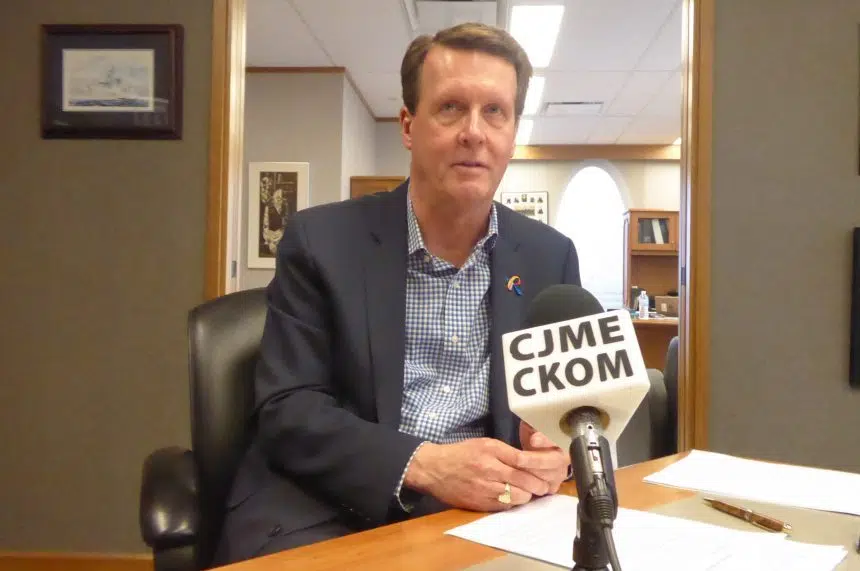Mayor Michael Fougere rejected any comparisons being made between the water quality in Regina and that which has been found in Flint, Mich., calling them “unfair.”
“Firstly, the source of water in Flint has lead in it. That’s the problem and the officials did nothing at all, (and) in fact, were hiding that. There’s Legionnaires disease in the water as well. So there’s a different profile. The nature of the testing of the water is different than here,” Fougere said during the Greg Morgan Morning Show on Tuesday.
The mayor’s comments came a day after a consortium of journalists across the country published an investigation that found Regina was among several Canadian cities where lead above acceptable levels was found in tap water.
Fougere stressed that Regina’s water, sourced from the Buffalo Pound Water Treatment Plant, is safe and that elevated lead levels present in drinking water is not a widespread problem but rather one found in the city’s older neighbourhoods.
He said 95 per cent of city-owned water connections are lead-free, leaving about 3,600 lead connections that still need to be replaced.
According to the city, replacing them at the current rate could take up to 25 years. The city will replace only about 160 connections before the end of 2019.
“We should be doing it faster,” Fougere said. “I think we’re going to ask administration to accelerate the program, get those out of there right away. That five per cent remaining is a problem, for sure.”
However, there also is a connection on the homeowner’s side of the property line. The city has sent letters to property owners offering to test their water, along with a year’s worth of free water filters.
Testing, participating in the program or replacing the connection is the homeowner’s responsibility.
Since renters depend on their homeowners to do so, Fougere hinted at mandating replacement.
“But (we’ll) also encourage and try to have a program in place where there’s a compulsory changeover on the homeowner’s side as well,” Fougere said.
“It may be that the landlords are not telling the tenants that issue — and that’s something we have to work on for sure, no doubt about that.”
Fougere said the study was “very thorough and it certainly shows the issue,” but he stressed that some context was needed when it came to Regina’s water.
“Some of the commentary makes it sound like these pipes are all over the city, it’s a city-wide issue and there has been neglect,” Fougere said. “That has not been the case at all.
“I’m not excusing anything here at all, but we’re focusing on where the problems are — that is, in older areas of the city, homes built in the ’50s and ’60s plus the connections for the city in those areas as well. But the source of water is safe.”
Meanwhile, the city has released more information on its testing program.
Of the 224 homes the City of Regina has done testing for since 2016, 162 have exceeded the limit set out by Health Canada — five parts per billion. Of the testing done by people in their homes, 51 of 75 exceeded the Health Canada limit.
When it comes to testing results, the city cautions that it’s a “snap shot” in time and results can vary from day to day.
Between 2016 and 2019, the city said the highest lead result found in testing done by the city was 219 parts per billion, while the highest result for at-home testing was 176 parts per billion.







